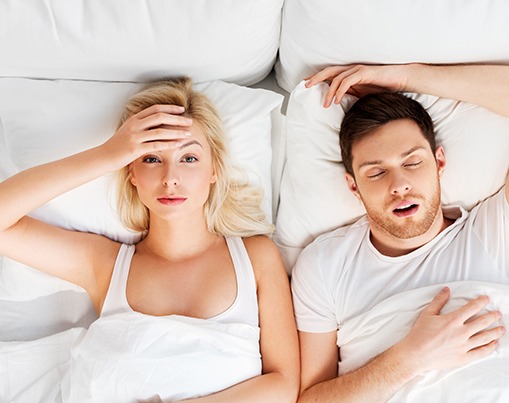Symptoms of Sleep Apnea Cumming
How Well Are You Sleeping?

How well have you been sleeping lately? If the answer to that question is, “poorly” or “I’m not sure,” there is a chance you have a sleep disorder that is disrupting your nightly rest. You might have sleep apnea! What are some common symptoms of this condition, and what should you do if you suspect that you have it? This page provides some helpful information.
How to Identify Symptoms of Sleep Apnea

Symptoms of sleep apnea are not always easy to identify. Some of them happen when you are not aware of your body or your surroundings, and other symptoms may be easy to dismiss with other explanations. However, it is important that you pay attention to your body and strive to notice anything that feels unusual or just a little bit “off.”
It can help to keep a sleep journal. Take note of things like:
- When you go to sleep and wake up.
- How you feel upon waking.
- How many times you woke up during the night.
- Any activities that might have affected the quality of your sleep, such as drinking alcohol or caffeine.
Most Common Symptoms of Sleep Apnea

Sleep apnea can cause quite a few different symptoms, but some of the most common include:
- Loud snoring. Snoring occurs as air pushes past the tissues in your throat, causing them to vibrate. Those same tissues can completely block your airway, leading to the pauses in breathing that are characteristic of obstructive sleep apnea (OSA).
- Daytime exhaustion. While being tired has become somewhat normalized in modern society, it is actually not normal at all! Feeling exhausted all the time, especially after spending 7 – 8 hours asleep, can be a major indicator of a sleep disorder.
- Morning headaches. When sleep apnea causes you to stop breathing, your body ceases to get the oxygen it needs to function optimally. This can cause the blood vessels to widen, resulting in headaches. Many people with sleep apnea experience headaches in the morning that get better as the day goes on.
- A lack of oxygen while you sleep can stress your cardiovascular system and increase your risk of high blood pressure.
The Next Steps for Sleep Apnea Treatment

Sleep apnea is not self-diagnosable, so if you suspect you have it, consult with our team. We can refer you to a local sleep physician, who in turn can help you arrange for a sleep test. The test will reveal whether or not you have sleep apnea and how severe your condition is. Afterward, you can explore your treatment options. Many patients find symptom relief and improved overall health by using a custom oral appliance, which helps to keep the airway open during sleep.

